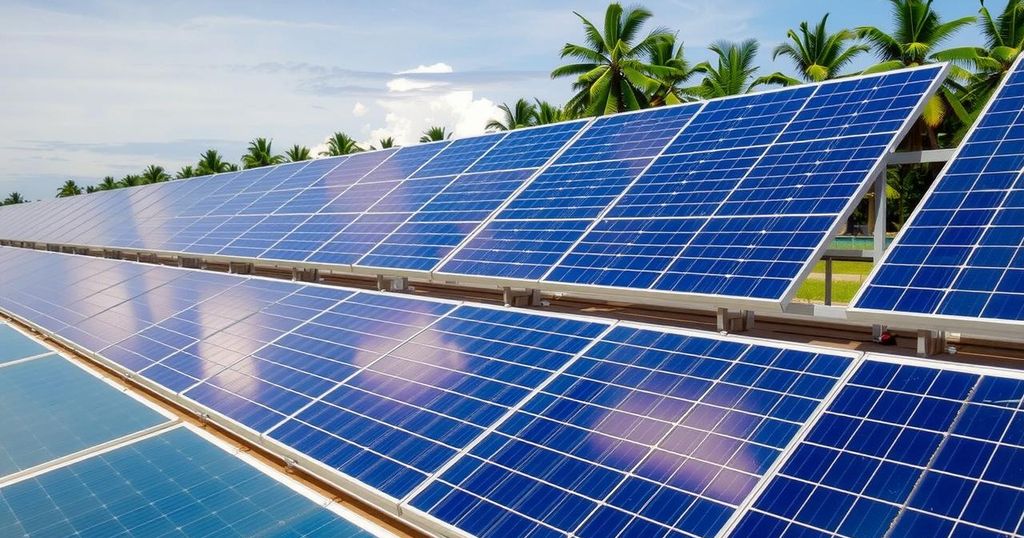Navigating Challenges: The Future of Malaysia’s Solar Industry Amidst Tariff Threats
The Malaysian solar industry faces significant challenges due to potential tariffs proposed by the Trump administration. Experts suggest that instead of relocating, enhancing local content in solar manufacturing could be beneficial. Despite tariff concerns, investments from Chinese companies remain strong, indicating continued interest in Malaysia as a solar manufacturing hub. However, investigations into circumvention practices may lead to further scrutiny, compelling local firms to adapt strategically to the changing market landscape.
The future of Malaysia’s solar industry appears uncertain in light of potential tariffs introduced by the Trump administration in a proposed Trump 2.0 period. Instead of consistently shifting production to evade these tariffs, Malaysian academic Tham Siew Yean suggests enhancing local content in manufacturing. In the past, Malaysia has drawn significant foreign direct investment due to its incentives, with companies like First Solar and SunPower establishing operations there. However, as geopolitical dynamics evolve, particularly under the scrutiny of the U.S. Department of Commerce, Malaysian producers face increasing pressure. Recent investigations into solar manufacturing indicated that the circumvention practices of some manufacturers could have ramifications for local producers, with final determinations on tariff impositions expected in 2025. Despite these challenges, notable investments from Chinese companies persist. Risen Energy’s substantial investment and LONGi Green Energy Technology’s plans illustrate the industry’s ongoing attractiveness, even as market conditions remain volatile. Ultimately, diversifying export markets may prove essential for Malaysian companies navigating these complex tariff landscapes.
The article addresses the pressures facing the Malaysian solar industry due to potential tariffs from the U.S. under the Trump administration. It outlines the historical context, including previous tariffs and the actions taken by Malaysia and foreign companies to adapt. It also discusses recent U.S. investigations into circumvention in solar manufacturing and the implications for Malaysia as a key player in the solar sector amidst international trade dynamics. The article highlights the continued interest from Chinese manufacturers despite ongoing tariff concerns.
In conclusion, while the Malaysian solar industry grapples with the implications of U.S. tariffs and scrutiny, there exists a potential pathway towards resilience. By focusing on increasing local content and diversifying export markets, Malaysian firms may better position themselves against the evolving trade environment. Nevertheless, substantial investments continue to flow into the Malaysian solar market, signifying ongoing confidence despite regulatory challenges. As stakeholders await the final decisions on tariffs, strategic adaptations will be crucial for sustaining growth in this sector.
Original Source: www.thinkchina.sg




Post Comment